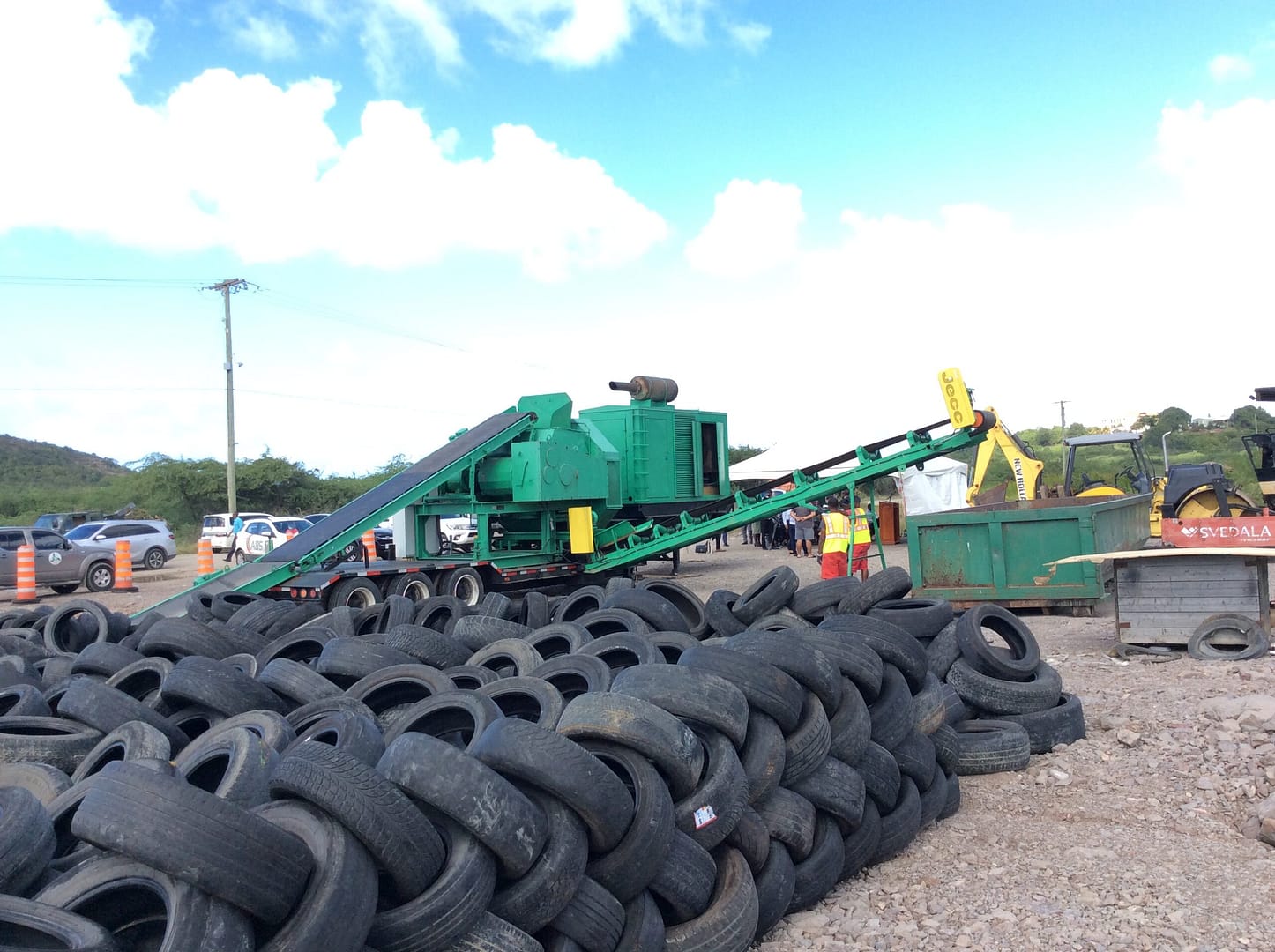
Plastic microparticles from road tyres are “high concern” pollutants, research shows
Plastic microparticles released into the environment from common road tyres should be treated as a “high concern” pollutant, that may exceed chronic safety limits in some heavily contaminated environments, new research has shown.
A team of researchers, led by experts from the University of Exeter and the University of Plymouth, has looked at the chronic toxicity of particles and chemical leachates found on a series of popular tyre brands.
They then looked at the effect these particles and chemicals would have on small planktonic crustaceans, the water flea (Dapnia magna).
They discovered that the plastic pollutants from the tyres showed a distinct effect on both the reproduction and development of the water flea – which also displayed visible particle uptake within their digestive tract.
When looking at the leachates – liquid that has passed through the tyre material, taking some of the harmful chemicals with it – they found a strong presence of zinc, titanium and strontium as well as many organic chemicals.
Overall, of the numerous organic chemicals present during the test, more than 50 were found across all five tyre brands, with a significant number of those chemicals classified as very toxic.
This new research shows that tyre particles are hazardous pollutants, and should be treated as a particular concern close, to or possibly above, chronic environmental safety limits in some locations, researchers say.

The research is published in the Journal of Hazardous Materials. It is part of a wider joint TYRE-LOSS project, led by the University of Plymouth.
Paul Boisseaux, lead author of this study and from the University of Exeter said: “Tyres exert a complex toxic pressure to wildlife because they release plenty of toxic chemicals as well as tiny particles that can be ingested, so both chemical and physical effects are occurring”.
The use of tyres by cars, buses and other vehicles is a ubiquitous feature of modern life, served by a mass global tyre industry that is forecast to grow around 3 per cent each year.
Tyre-tread particles generated during roadway use are a major environmental pollutant, with a significant proportion being washed away into waterways near traffic networks. It is estimated at around 18 per cent of these particles eventually reach freshwater, while two per cent reach estuaries.
However, while previous research suggested there may be concentrations of these particles in the environment, the toxicological effects they have on aquatic organisms were less well understood.
For this study, the team used several popular tyre brands from around the world to generate a tyre tread microparticle mixture. The toxicity of both particles and chemical leachates were then studied on the test species, the water flea.
They found that, over a three-week period, pristine tyre tread microparticles were more toxic (concentration being lethal for 50% of the population, LC50, is 60 mg.L‑1) than chemical leachates alone (LC50 542 mg.L‑1).
The results suggest the particles were more toxic to water flea than the more commonly studied polyethylene microplastics.
Professor Richard Thompson OBE FRS, Head of the International Marine Litter Research Unit at the University of Plymouth, leads the TYRE-LOSS project and is a co-author on the new study.
He said: “Our previous work has shown that road debris is a major source of microplastics in the environment. In recent years, we have been working with partners across research and industry to determine how those particles distribute and their potential to cause harm.
“This new study is of key importance because it demonstrates the potential for harmful effects on an aquatic invertebrate species, at concentrations similar to those we have recorded near to roads in the UK. It is clearly an area we need to explore further.”
Deep dive into the chronic toxicity of tyre particle mixtures and their leachates is published in Journal of Hazardous Materials
Advertise with the mоѕt vіѕіtеd nеwѕ ѕіtе іn Antigua!
We offer fully customizable and flexible digital marketing packages.
Contact us at [email protected]
















When this envyronaziz will say : we need to stop spraying the atmosphere with the most hard chemicals. Aluminum,barium,atmosphere,etc,etc.
But not problem,the answer for this eugenetic genocide is more needles with liquid dead on it. Shame on you…gangs of vultures,remember,you are sell your father’s,wives,kids,friends,your animals for a BS oaper or recognition.
Yet they still use Malathion in the fogging machines and no one doing a thing about it.
Comments are closed.